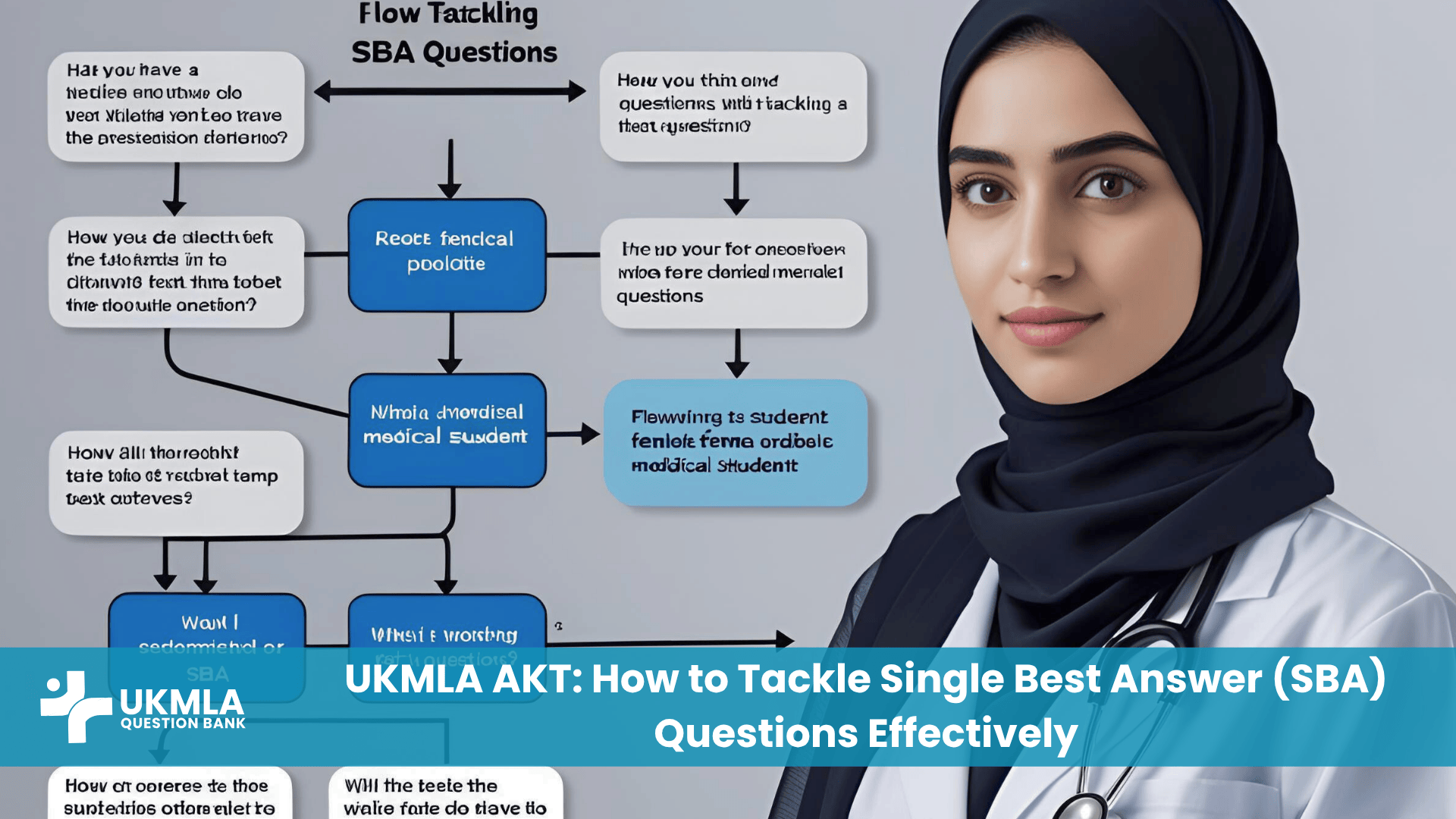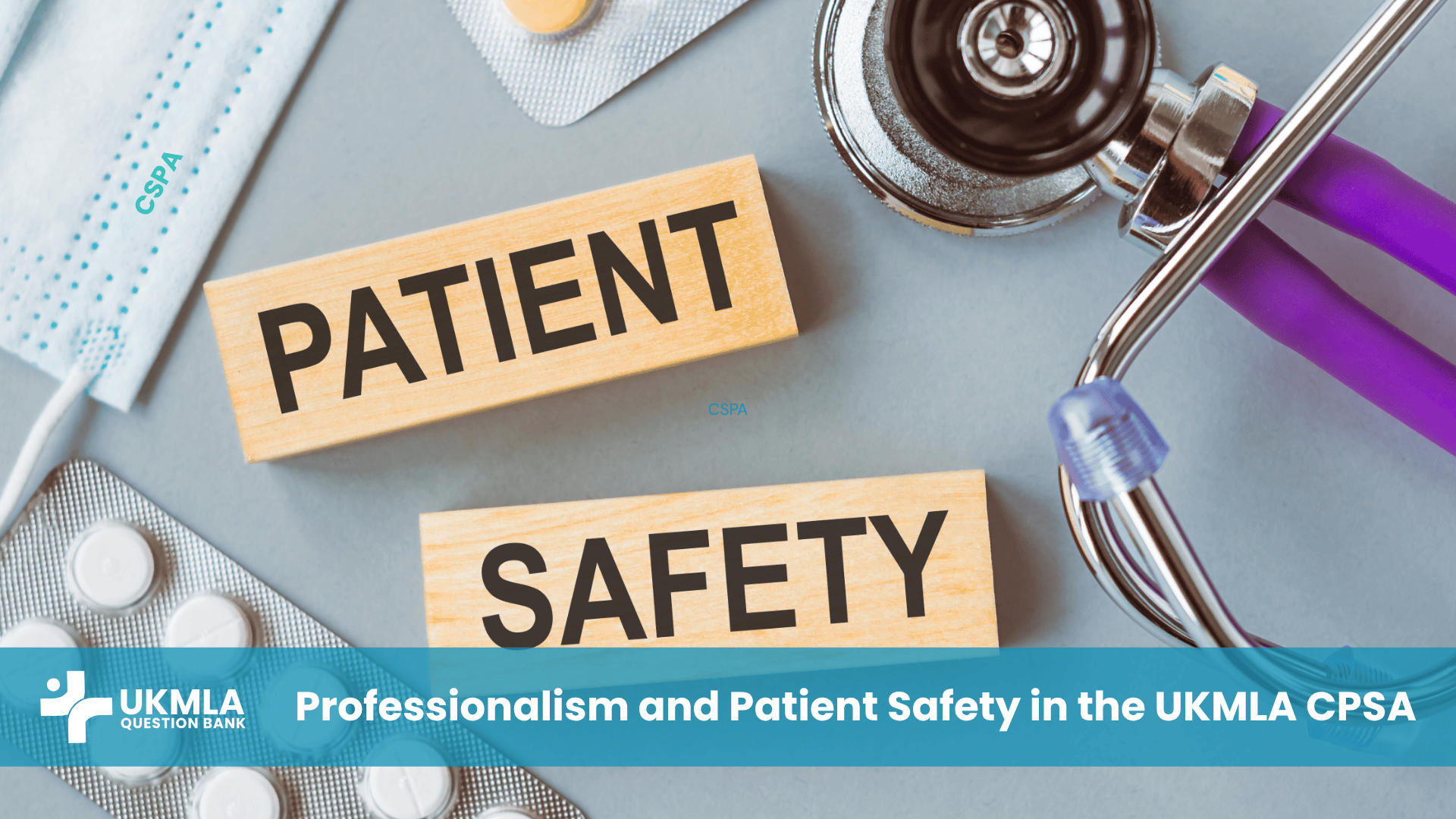Introduction
Cultivating the right mindset for UKMLA success is arguably as important as mastering the vast clinical knowledge required for the exam. The path to licensure is a marathon, not a sprint, and it’s paved with challenges that test not just your intellect, but your resilience, focus, and mental well-being. Many brilliant candidates stumble not because they don’t know the material, but because they succumb to burnout, self-doubt, and overwhelming stress.
This guide is designed to be your mental toolkit. We will explore seven actionable strategies to help you build a robust and positive psychological foundation for your UKMLA preparation. Think of this not as an optional extra, but as a core part of your study plan. By actively training your mindset, you can enhance your learning, improve your performance under pressure, and make the entire process more sustainable and even rewarding.
Table of Contents
ToggleBuilding Your Mindset for UKMLA Success: 7 Key Strategies
Strategy 1: Cultivating a Growth Mindset
The foundation of a successful mindset is the belief that your abilities can be developed through dedication and hard work. This is the core of a “growth mindset,” a concept pioneered by psychologist Carol Dweck.
Embracing Challenges as Learning Opportunities
A fixed mindset sees a difficult topic like cardiology or a complex ethical dilemma as a threat—a test that might reveal a lack of innate ability. A growth mindset, however, sees it as an opportunity. Every challenging question you get wrong is not a failure, but a signpost pointing directly to a gap in your knowledge. By reframing these moments as valuable learning experiences rather than judgments of your worth, you eliminate the fear of failure and accelerate your learning.
The Power of “Yet”
One of the simplest yet most powerful mindset shifts is adding the word “yet” to your internal monologue. Instead of thinking, “I can’t interpret this ECG,” you train yourself to think, “I can’t interpret this ECG yet.” This small change transforms a statement of limitation into a statement of progress. It implies that mastery is not a fixed state but a point on a journey, and you are actively on that path. It’s a fundamental part of a list of how to pass the UKMLA essential tips.
Strategy 2: Building Unshakeable Resilience
Resilience is your ability to bounce back from adversity. Your UKMLA journey will have setbacks—a lower-than-expected mock exam score, a topic that just won’t stick, or a week where you feel you’ve made no progress. Resilience is the skill that ensures these moments are temporary bumps, not derailing events.
Bouncing Back from Setbacks (e.g., a poor mock exam score)
A poor mock exam score can be demoralizing. The resilient response is not to ignore it or to spiral into self-doubt, but to analyze it strategically. See it as pure data. Which areas were weakest? Was the issue knowledge, question interpretation, or time management? A bad score is a gift—it’s a free, detailed diagnostic report on where to focus your energy. Thank the test for showing you the path forward, and then get back to work on that path.
Focusing on Process Over Outcome
While passing the UKMLA is the ultimate outcome, fixating on it can create immense pressure. Instead, focus on the process. Your goal today isn’t to “pass the UKMLA”; it’s to “complete 50 cardiology questions” or “understand the renin-angiotensin system.” By focusing on these manageable, process-oriented goals, you build momentum and a sense of accomplishment, and the outcome takes care of itself.
Strategy 3: The Art of Positive and Realistic Self-Talk
The voice inside your head is your constant companion during your studies. Ensuring it’s an encouraging coach rather than a harsh critic is a trainable skill.
Identifying and Challenging Negative Thought Patterns
Medical students are often high-achievers and can be prone to negative thought patterns like “catastrophizing” (e.g., “If I fail this mock, I’ll fail the UKMLA and my career is over”) or “imposter syndrome” (e.g., “Everyone else understands this but me, I don’t belong here”). The first step is to simply notice these thoughts without judgment. When you catch yourself in a negative spiral, pause and ask: “Is this thought actually true? Is it helpful?”
Replacing Self-Criticism with Self-Compassion
Treat yourself with the same kindness and understanding you would offer a friend in the same situation. Instead of “That was a stupid mistake,” try “That was a tough question, and I’ve now learned something new from it.” Self-compassion is not about making excuses; it’s about creating a mental environment that fosters learning and prevents the paralysis of self-criticism.
Strategy 4: Mastering Focus and Avoiding Burnout
The sheer volume of material for the UKMLA can feel overwhelming, making focus and energy management critical skills. The challenge often lies in balancing UKMLA prep with medical school work or other life commitments.
Effective Time Management and The Pomodoro Technique
A structured study plan is essential. The Pomodoro Technique is a simple but powerful method:
Choose a single task.
Set a timer for 25 minutes.
Work with intense focus, without distractions, for that 25 minutes.
Take a 5-minute break.
After four “Pomodoros,” take a longer break (15-30 minutes). This technique combats mental fatigue and makes a huge task feel more manageable. Integrating this into a 3-month UKMLA study plan template can dramatically increase your efficiency.
The Importance of “Digital Sunsets” and Quality Rest
High-quality rest is not a luxury; it’s a vital part of the learning process. Your brain consolidates memory during sleep. Staring at screens late at night can disrupt sleep quality due to blue light exposure. Implement a “digital sunset”—turn off all study-related screens at least an hour before you plan to sleep. Use this time to read for pleasure, listen to music, or talk with family. Protecting your rest is as important as any study session.
Mindset Principle: “Almost everything will work again if you unplug it for a few minutes, including you.” – Anne Lamott
Strategy 5: Mindfulness and Stress Reduction
Mindfulness is the practice of paying attention to the present moment without judgment. It is a powerful antidote to the anxiety of worrying about the future (the exam) or ruminating on the past (mistakes made).
Simple Mindfulness Exercises for Busy Students
You don’t need to meditate for an hour a day. Start small.
The 3-Minute Breathing Space: Pause your studies. For the first minute, notice your thoughts and feelings. For the second minute, focus entirely on the sensation of your breath. For the third minute, expand your awareness to your whole body. This simple exercise can reset your focus and calm your nervous system. For more techniques, the NHS website offers excellent, simple guides.
Breathing Techniques to Manage Pre-Exam Anxiety
When you feel the physical symptoms of anxiety (e.g., a racing heart before a mock exam), use a simple breathing technique like “box breathing”:
Breathe in slowly for a count of four.
Hold your breath for a count of four.
Breathe out slowly for a count of four.
Hold the exhale for a count of four. Repeat this cycle 4-5 times. This physiological trick directly activates your parasympathetic nervous system, calming you down and allowing you to think more clearly.
Strategy 6: Leveraging Your Support System
You do not have to go through the UKMLA journey alone. Your support system is a critical asset.
The Role of Peers, Mentors, and Family
Form a small study group to discuss difficult concepts and keep each other accountable. Find a mentor—a senior doctor or a tutor who has been through the process—to provide guidance and perspective. Be open with your family and friends about the pressure you’re under and what you need from them, whether it’s encouragement or just quiet time to study.
Knowing When to Seek Professional Help
Studying for the UKMLA is incredibly stressful. It’s important to recognize the signs of burnout or more serious mental health issues. If you are persistently feeling overwhelmed, hopeless, or unable to cope, it is a sign of strength, not weakness, to seek professional help. Leading UK charities like MIND provide excellent resources on where to start.
Strategy 7: The Power of Visualisation and Goal Setting
Your brain has difficulty distinguishing between a vividly imagined experience and a real one. You can use this to your advantage.
Setting SMART Goals for Your UKMLA Preparation
Break down the monumental task of “passing the UKMLA” into smaller, manageable goals. Use the SMART framework:
Specific (e.g., “Master the ECG criteria for heart blocks”)
Measurable (e.g., “Complete 50 cardiology questions”)
Achievable (e.g., “Study for two focused 25-minute blocks tonight”)
Relevant (to your overall study plan)
Time-bound (e.g., “by the end of this week”) Achieving these small goals provides a regular sense of accomplishment and keeps you motivated.
Visualising Success on Exam Day
Take a few minutes each day to vividly imagine yourself on exam day. Picture yourself walking into the exam hall feeling calm, focused, and prepared. Imagine reading a question, recognizing the pattern, and confidently selecting the correct answer. This isn’t just wishful thinking; it’s a form of mental rehearsal that can reduce anxiety and improve performance when the actual day arrives. This is a key part of your UKMLA exam day checklist.
Frequently Asked Questions (FAQ) about Mindset for UKMLA Success
Recognize that it’s incredibly common in medicine. Keep a log of your achievements and positive feedback to review when you feel like a fraud. Remind yourself that you earned your place in medical school and have the capacity to pass this exam.
First, don’t panic. A mock exam is a learning tool, not a final judgment. Analyze the data unemotionally to identify your weakest areas and spend the remaining time focusing on those topics. A failed mock can be the catalyst for a final, targeted push that makes all the difference.
Focus on your own journey and your own progress. Everyone has different strengths and weaknesses. Compete only with the person you were yesterday. If you find social media is fueling comparison, take a break from it.
Schedule your rest and leisure time with the same seriousness as your study sessions. Recognize that breaks are essential for learning and preventing burnout. When it’s time for a break, be fully present in that break.
Avoid looking at your phone or diving into study material for the first 15-30 minutes. Use this time for a positive routine: a few minutes of mindfulness, stretching, hydration, or simply enjoying a cup of tea and looking out the window. How you start the day sets the tone.
Break the marathon into a series of short sprints. Focus only on your goals for this week, or even just for today. Regularly remind yourself of your “why”—your core motivation for becoming a doctor.
This is highly personal. Many find a hybrid approach works best. Study alone for deep learning and memorization, and use a group to discuss complex topics, test each other, and provide mutual support.
Have an open conversation with them. Explain the intensity of the UKMLA and what your study schedule will look like. Let them know how they can best support you, whether it’s by giving you space or by providing encouragement.
The “box breathing” technique. Before the timer starts, breathe in for four seconds, hold for four, out for four, and hold for four. It’s a simple, physiological way to slow your heart rate and calm your nerves.
Absolutely. A positive, resilient, and focused mindset allows you to access and apply your knowledge effectively under pressure. A negative or anxious mindset can block your recall and lead to simple mistakes. Your mindset is the operating system on which your knowledge runs.
Conclusion
Your journey through the UKMLA is one of the most challenging intellectual and emotional periods of your career. While clinical knowledge forms the bedrock of your preparation, it is your mindset that will ultimately determine your ability to perform under pressure and cross the finish line successfully. A strong mindset is not something you’re born with; it is a set of skills that can be trained and strengthened with consistent practice.
Embrace the principles of a growth mindset, build your resilience, and be intentional about your self-talk and well-being. By integrating these seven strategies into your study routine, you are not just preparing to pass an exam; you are building the mental fortitude and healthy habits that will define your career as a capable, compassionate, and successful doctor in the UK.




